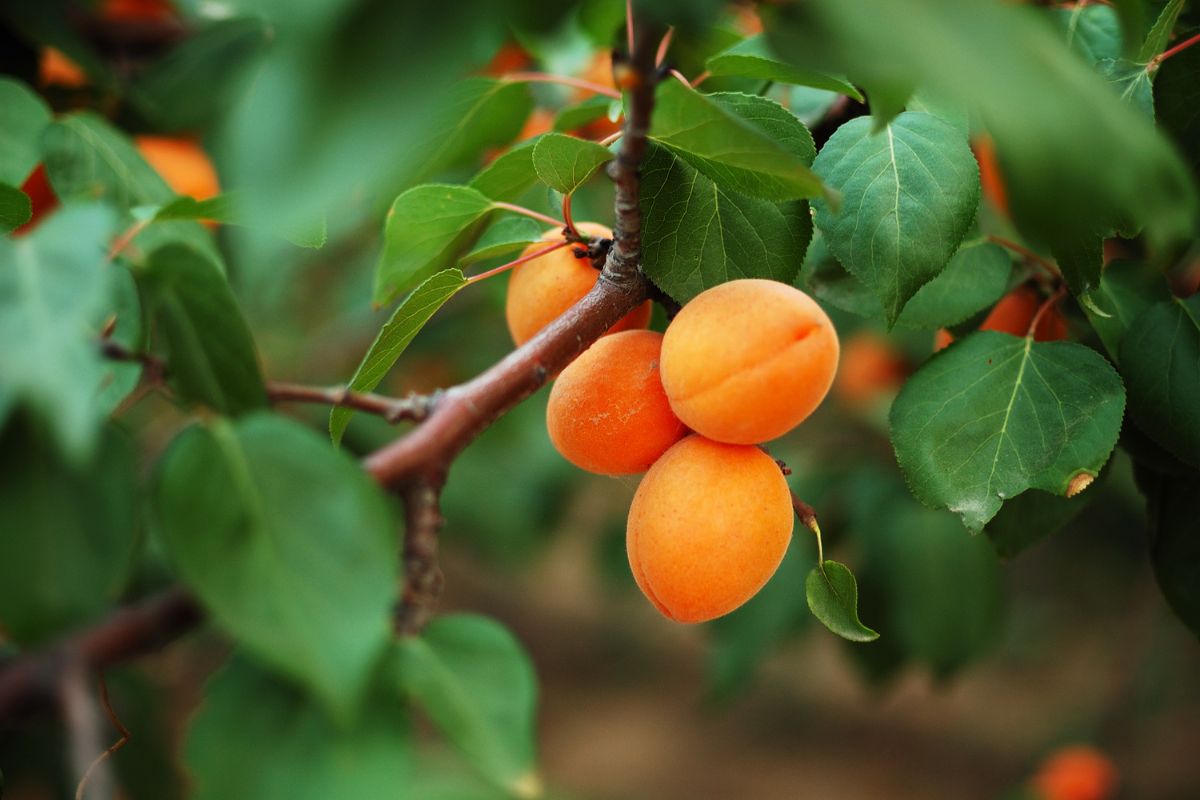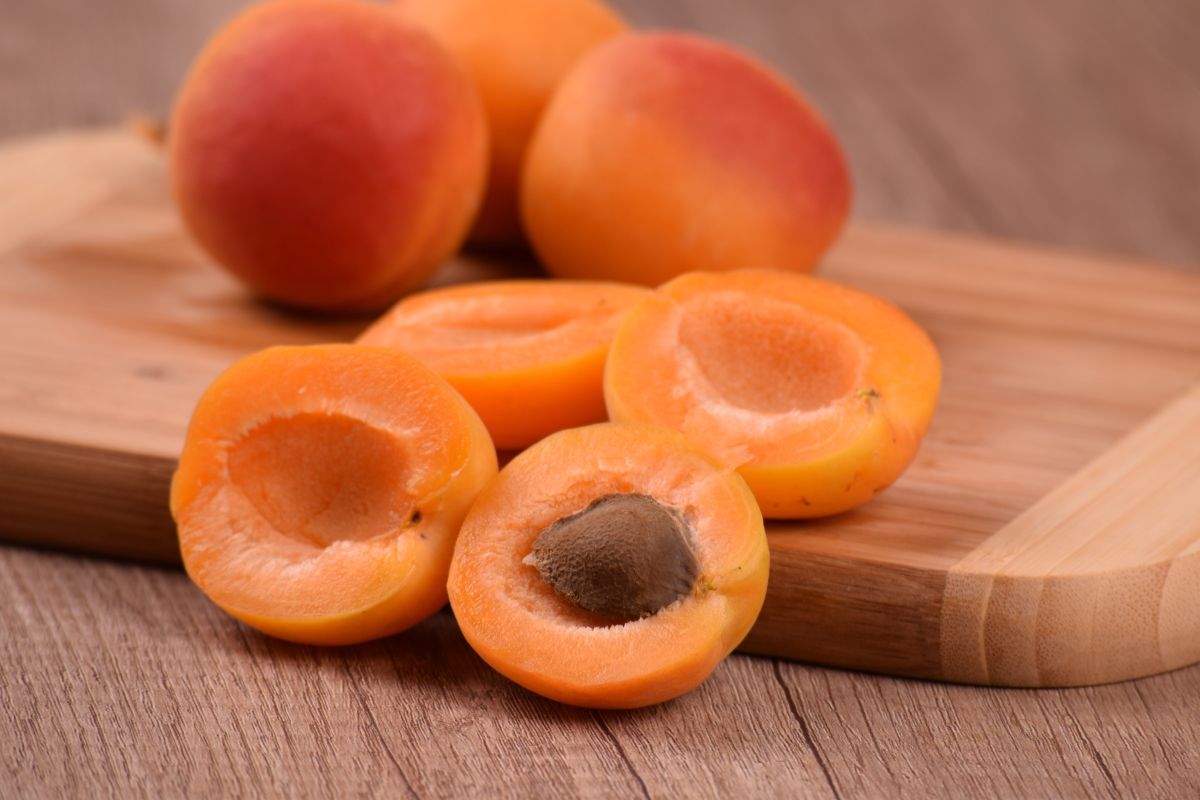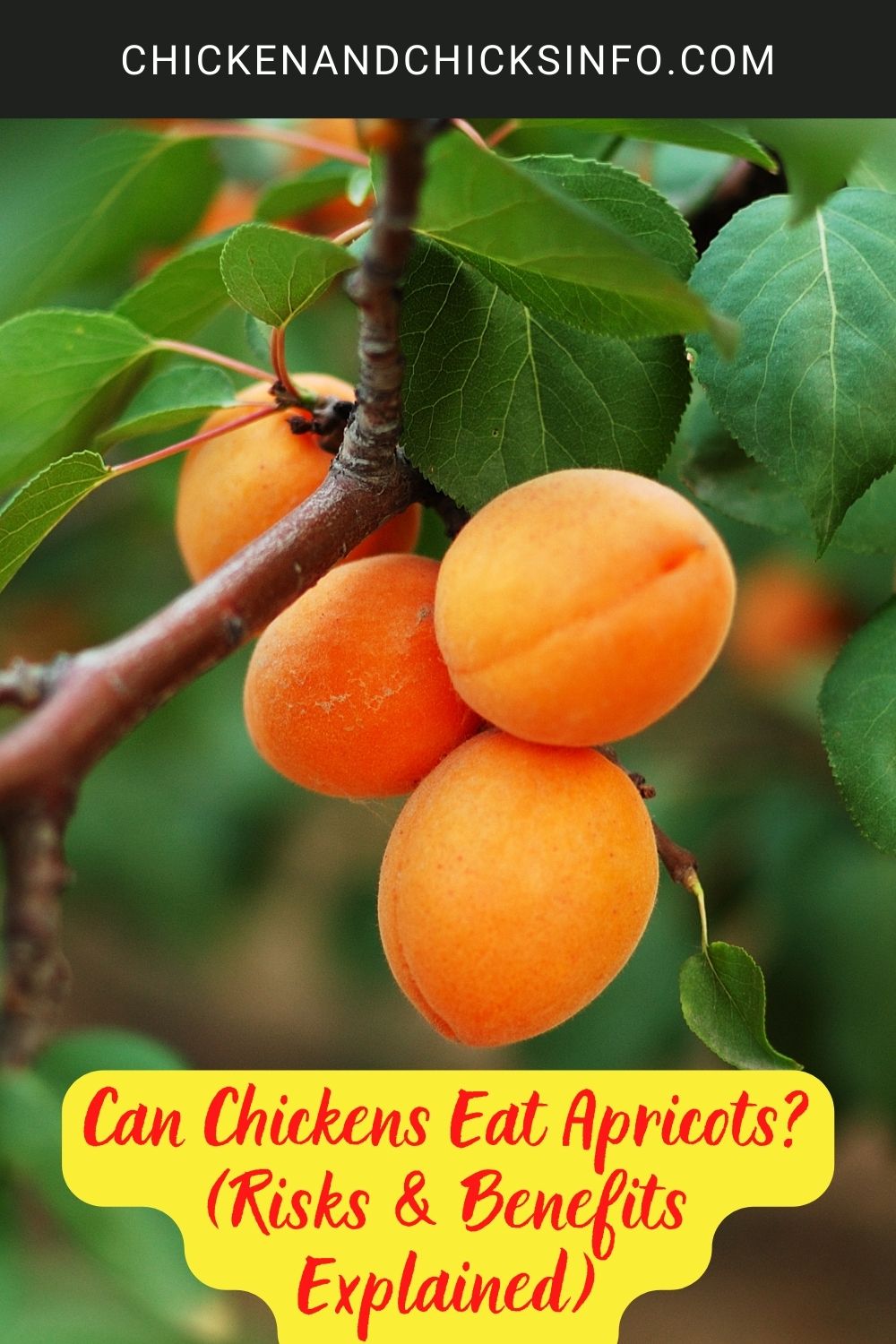
Chickens can eat apricots, yes. It’s recommended you don’t give them the pits or leaves as they contain the plant toxin amygdalin, which converts to cyanide after digestion. It’s a very, very small risk though, don’t panic if you’ve given your hens seeds or leaves before.
Jump to:
Are Apricots Healthy for Chickens?
Like most fruits, apricots are nutrient-rich and packed with a good range of vitamins, minerals, and antioxidants. Much of which chickens will benefit from when eating them, just as we do.
Overall, chickens do have very different nutritional requirements to us though. You can’t raise them on fruits like apricots alone, they’re to be given in moderation.
Backyard chickens get the bulk of their diet from a good commercial feed. Chicken feed is specially formulated to ensure they’re getting all the key nutrition they need to maintain optimal health and lay eggs.
Additional foods like fruits, vegetables, and table scraps are to be treated as “treats” for chickens. Typically given at the end of the day once they’ve filled up on the good stuff.
There’s no doubt that chickens love eating almost any foods you give them though. It’s a great way to bond and have some fun with them.
And an even better way to “recycle” or save food wastage!
Can Chickens Eat Dried Apricots?

Dried apricots are just as fine for chickens. You’ve probably noticed that chickens do not have teeth. But don’t worry, they don’t need teeth to eat dried or hard foods.
Chickens swallow foods, which then sit in their crop until they’re ready to digest it. The food then moves into an organ called a gizzard.
Their gizzard is a strong muscular organ that grinds up the food for them. Effectively doing the job teeth does for other species.
Can Chickens Eat Apricot Seeds/Pits and Leaves?
According to the ASPCA, the leaves, stems, and seeds of apricots contain a small amount of cyanide.
It’s only a small amount, and I know a lot of chicken owners that give their flock whole apricots and don’t worry as they don’t eat the seeds.
Still, it’s worth being aware of the risk. Personally, I don’t give my flock the seeds or any other parts of the plant just to be safe.
The ASPCA says that any small animals eating the leaves, stems, etc could show ill-effects, such as difficulty breathing, panting, dilated pupils, and shock if they ingest some of this toxin.
Related - Nectarines and peaches also contain the same toxin, read more about them here.
Other Foods Chickens Can Eat
Now you know that apricots make for a tasty treat, here are some of the other foods people commonly feed their chickens:
Fruits
Just like apricots, most fruits are fine for chickens and a great way to add some variety and added nutrition to their diet. I’ve never met a chicken that didn’t like grapes, figs, watermelon, banana, dragon fruits, etc.
Vegetables

Generally speaking. vegetables are also great for chooks. You can typically feed them either raw or cooked, and they’re packed with great nutrition. Try cabbage, sprouts, white potatoes (read below), asparagus, kale, etc.
Grains
Grains are commonly found in feeds and scratch because they deliver such great nutrition. They’re also inexpensive and encourage chickens to forage if you scatter some.
Some Foods Chickens Can Not Eat
Chickens are typically willing to eat just about anything you throw their way, so you still need to be careful and check that foods are safe for them.
There aren’t too many common foods that pose a risk. Here are some of the most common foods to avoid giving to chickens:
Green Potatoes/Tomatoes – Most plants and vegetables belonging to the nightshade family produce a toxin called solanine. Solanine is toxic chickens (and us!) and can cause some serious health issues.
It’s only present in certain parts of the plants. Such as unripe tomatoes or the leaves and stalks, or potatoes when they’ve turned green. If you have/eat peppers, eggplants, or tomatillos, I’d look into this topic more to be safe.
Raw Beans – Unless beans are cooked properly, they contain a toxin called lectin. This toxin is very dangerous to chickens, so keep raw beans well out of their way and always cook them thoroughly.
Chocolate – Chocolate and other foods containing cocoa are toxic to chickens and most small pets. There are a couple of compounds in chocolate called theobromine and caffeine that are known to cause animals some serious health issues.
Tea and Coffee – This is one for those of you who use coffee grounds or tea bags in your compost pile in a garden with backyard chickens in. For the same reasons as chocolate, they’re toxic.
Avocado Pits/Skin – The dangers of avocado skins and seeds is well-known to most pet owners. It’s OK for chickens to eat the flesh, but the large stone and pit contain a fungicidal toxin called persin.
Spoiled or moldy foods – It’s tempting to try and recycle foods that we don’t want by giving them to our chickens. As long as the foods aren’t dangerous in any way, and not spoiled or moldy, it’s fine to do so.
Greasy/Salty Foods – These types of foods aren’t toxic as such, but for obvious reasons, they aren’t great for chickens. Chickens require quality nutrition to stay healthy and lay their best eggs. The last thing you want is an overweight junk food-dependent chicken!
In Summary - Can Chickens Eat Apricots?
Now you know - chickens can eat apricots. Fruits like apricots are among the best foods you can give to backyard chickens to add some variety to their diet and deliver some awesome nutrition.
You just need to be aware of any parts of fruits and plants that may be toxic, avoid those, and you’ll have a bunch of happy hens on your hands!





